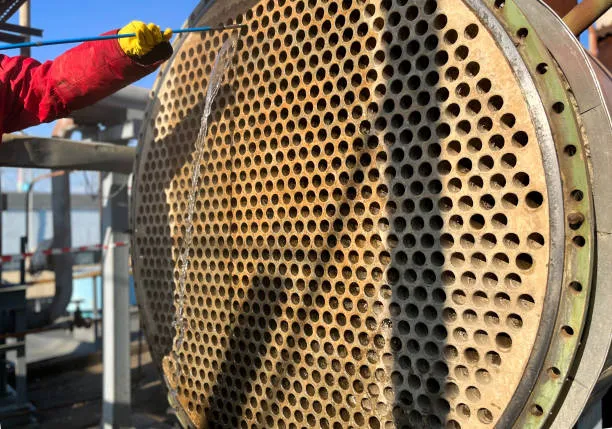The main maintenance of a heat exchanger is cleaning the tubes as the surface of the tubes is the heat transfer surface. The cleaning of tubes is required from both inside and outside as deposits/scales can form on both sides.
Cleaning of the tubes is done by mechanical or chemical means. Usually, cleaning of the tubes from the inside is done by brushing (round wire brush used) or by acid cleaning.
{tocify} $title={Table of Contents}
Mechanical Cleaning of Heat Exchanger
For mechanical cleaning, the heat exchanger should be opened. Replacement of gaskets is essential to avoid leakage when opened cleaning.
Chemical Cleaning of Heat Exchanger
In the case of acid cleaning, the dilute acid (hydrochloric) is circulated through the heat exchanger for the predetermined period the alkali for neutralization of the residual acid is circulated and finally, the heat exchanger is flushed with fresh soft water.
Acid cleaning may be adopted for external cleaning of the tubes. Cleaning may be done periodically or during the shutdown of the plant.
There are chances of leakage occurring through the tube sheet which may be rectified by welding. After a long period of operation depending upon the service conditions, the tubes may get corroded which results in a decrease in the thickness of the tubes which can be judged by sound tests.
The corroded tube may require replacement or filling by welding. A tube that leaks at a certain point should be isolated from the service by plugging both ends of the tube.
> Classification of Shell and Tube Heat Exchanger
Take these Notes is, Orginal Sources: Unit Operations-II, KA Gavhane


